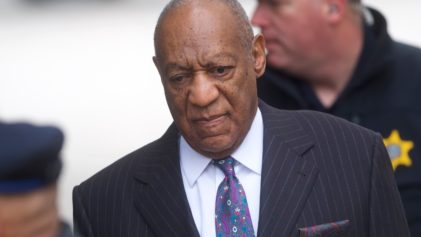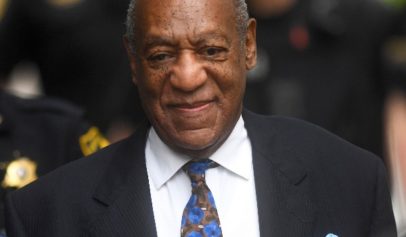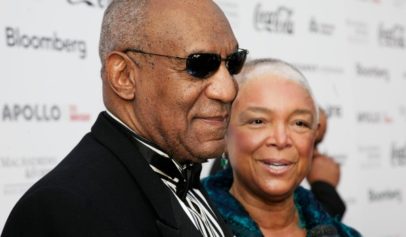PHILADELPHIA (AP) — Speaking out for the first time, the jury that convicted Bill Cosby at his sexual assault retrial said Monday its decision was influenced only by what happened in court. The youngest member of the panel said the comedian’s own words sealed his fate.
Harrison Snyder, 22, said in an interview on ABC’s “Good Morning America” that Cosby’s deposition — in which he admitted giving women drugs to have sex with them — was the evidence that made him believe he was guilty.
“I think it was his deposition, really. Mr. Cosby admitted to giving these quaaludes to women, young women, in order to have sex with them,” Snyder said.
Snyder said it “wasn’t an open and shut case,” but added he had no doubt the jury made the right decision Thursday in convicting Cosby on three counts of aggravated indecent assault.
The investigation into Cosby was reopened in July 2015 after a federal judge, acting on a request from The Associated Press, unsealed portions of Cosby’s deposition testimony from a civil lawsuit he settled with his accuser, Andrea Constand, in 2006 for nearly $3.4 million. In the testimony, which was read to jurors at both trials, he described giving quaaludes to women before sex in the 1970s. Cosby also described his sexual encounters with Constand, a Temple University women’s basketball administrator.
Five other women testified at the retrial that Cosby had drugged and molested them as well, but Snyder said they weren’t a factor in his decision.
“I don’t think it really necessarily mattered that these other five women were here because he said it himself that he used drugs for other women,” he said.
The Cosby jury issued a statement saying its decision was not influenced in any way by factors other than what was seen and heard in the courtroom. Race and the #MeToo movement against sexual misconduct were never discussed, according to the statement, obtained by NBC’s “Today” show.
“After thoughtful and meticulous consideration of the information and evidence provided to us, we came to our unanimous verdict,” the jury said. “Not once were race or the #metoo movement ever discussed, nor did either factor into our decision, as implied in various media outlets.”
Cosby, 80, is now a prisoner in his own suburban Philadelphia home and faces the prospect of spending the rest of his life behind bars as he awaits sentencing, likely within the next three months. His publicist has declared his conviction a “public lynching,” and his lawyers have vowed to appeal.
“This is what they wanted,” Cosby told the New York Post’s Page Six after his conviction. He referred to prison as “that place.”
The Post said it also interviewed Cosby last year during his first trial, which ended in a mistrial because of a hung jury. But the newspaper agreed to hold his comments while his case wound through the courts.
Cosby said he rejected a plea deal that would have required him to serve house arrest and register as a sex offender — a claim rejected by the DA’s office last year, when Cosby’s side first made it, and again on Monday.
“We never offered Mr. Cosby a plea deal at any time. We were confident in our evidence and were focused on proceeding to trial,” District Attorney Kevin Steele’s spokeswoman, Kate Delano, said Monday.
Cosby also seemed to compare himself to Nelson Mandela, the imprisoned anti-apartheid leader who later became South African’s first black president.
“I think back to the time when Camille and I went to visit Nelson Mandela in South Africa. He was a free man, but I remember when we met him at Robben Island where he had been in a prison for all of those years. I sat in that cell where he lived, and I saw how he lived . . . what he had to eat to live and what he went through. So, if they send me to that place, then that’s what they will do, and I will have to go there.”
It wasn’t the first time Cosby referenced Mandela. A photo of Cosby and Mandela was displayed in at least one of Cosby’s shows in 2015, at a time when sexual assault accusations against the comedian were mounting.
The Associated Press does not typically identify people who say they are victims of sexual assault unless they grant permission, as Constand has done.


